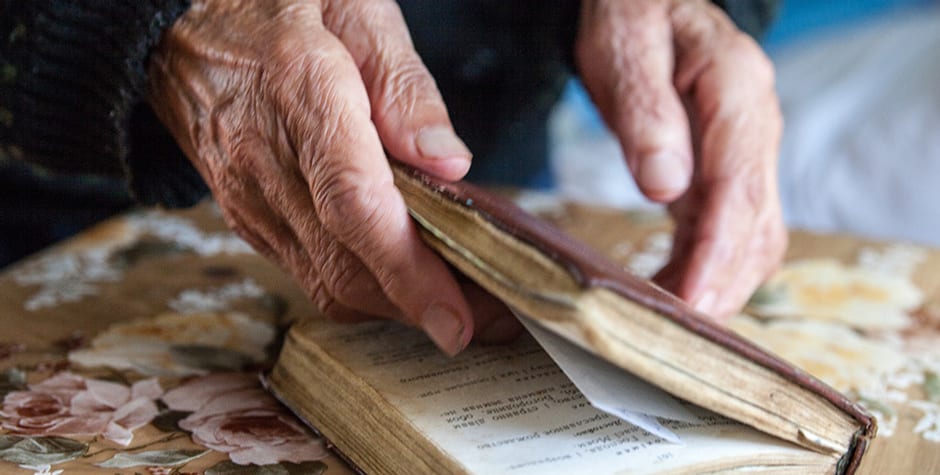ACLJ Fires Off Demand Letter to Biden’s DOJ and HUD To Stop Senior Living Centers From Banning Resident Bible Studies
Listen tothis article
Over the past year, the ACLJ has had numerous clients reach out about the unconstitutional banning of Bible studies in senior living centers. It’s outrageous that the religious liberty of many of the most vulnerable in society is under attack.
We’ve successfully defended numerous Christians in senior living centers but are concerned that more is at issue, so we just sent demand letters to the U.S. Department of Housing and Urban Development (“HUD”) and the Department of Justice (“DOJ”). These letters tackle the widespread religious discrimination by senior living complexes since the beginning of 2023.
We’re requesting that the DOJ and HUD issue written legal guidance to senior living centers (much like the Department of Education issues to schools) regarding their legal obligation to uphold religious liberty. We specifically request that they address the bans on Bible studies and that they implement proper enforcement mechanisms to ensure that the law is followed.
In other words, we are demanding that these federal agencies take action to protect religious liberty and stop senior centers from banning Bible studies. Such rampant unconstitutional targeting of Christian seniors must end now.
In the past year, the ACLJ has responded to 10 violations of the Fair Housing Act (FHA) across eight states. In our letters to the federal agencies, we explained the discrimination we’ve uncovered:
Instances of discrimination we have addressed include: (1) Bible studies prohibited from common areas/rooms while other resident-led groups are able to utilize the same area for other gatherings such as card games, board games, and knitting clubs; (2) religious decorations banned while allowing a variety of other decorations; (3) Bible studies and other religious gatherings banned from advertising the event in common areas where other resident-led groups advertise their events; and (4) religious literature banned in common areas used by other individuals for various pamphlets, flyers, and business cards.
Under federal law, Congress expressly authorizes HUD to administer the FHA, while the duty to enforce the FHA belongs to HUD and the DOJ. The FHA has prohibited religious discrimination since its inception. The FHA expressly prohibits “discriminat[ion] against any person in the terms, conditions, or privileges of sale or rental of a dwelling, or in the provision of services or facilities in connection therewith, because of . . . religion. . . .”
As we echo in our letters, the FHA’s prohibition on religious discrimination not only applies before a sale or lease but also extends to post-acquisition discriminatory conduct. For example, courts have explained that:
The inclusion of the word “privileges” implicates continuing rights. . . . [T]here are many “services or facilities” provided to the dwelling associated with the occupancy of the dwelling. Under this natural reading, the reach of the statute encompasses claims regarding services or facilities perceived to be wanting after the owner or tenant has acquired possession of the dwelling.
The DOJ even provides an example of housing discrimination that is particularly relevant here:
No one may be discriminated against in the sale, rental or enjoyment of housing because of their religious beliefs. This includes equal access to all the benefits of housing: someone could not, for example, be excluded from reserving a common room for a prayer meeting when the room may be reserved for various comparable secular uses.
Moreover, the FHA’s ban on religious discrimination covers both overt discrimination against members of a particular religion as well as less direct actions. These less direct actions can include inconsistent application of rules or regulations to single out religious speech and/or beliefs for different treatment. Thus, even if an apartment is applying a policy to all residents, the apartment cannot apply that policy in a way that singles out religion.
The reasons given for the religious discrimination in the situations we addressed were eerily similar. Most complexes discriminated on the basis of religion in order to be supposedly “neutral” or “inclusive.” (Yes, they oxymoronically claim that banning Bible studies would promote being “inclusive.”) However, absolutely nothing in the FHA allows complexes to discriminate or prevent religious activity in the name of neutrality. Thus, we explained that the issue is not the federal laws and regulations already in place that combat religious discrimination but apartment complexes not understanding the laws that apply to them.
Agencies offering guidance on specific legal issues is nothing new. In May 2023, the Department of Education released its “Guidance on Constitutionally Protected Prayer and Religious Expression in Public Elementary and Secondary Schools.” Notably, these guidance materials also provide information in a way that is clearer than just reading the underlying federal laws. We explained in our letters that if HUD and/or DOJ were to provide similar guidance, then religious discrimination in senior housing complexes could be prevented in the future.
We are hopeful that our demand letters result in guidance from these agencies. Until then, we will continue our fight against religious discrimination in senior living communities across the country. If you or someone you know have experienced a similar issue, do not hesitate to contact us at ACLJ.org/HELP.
